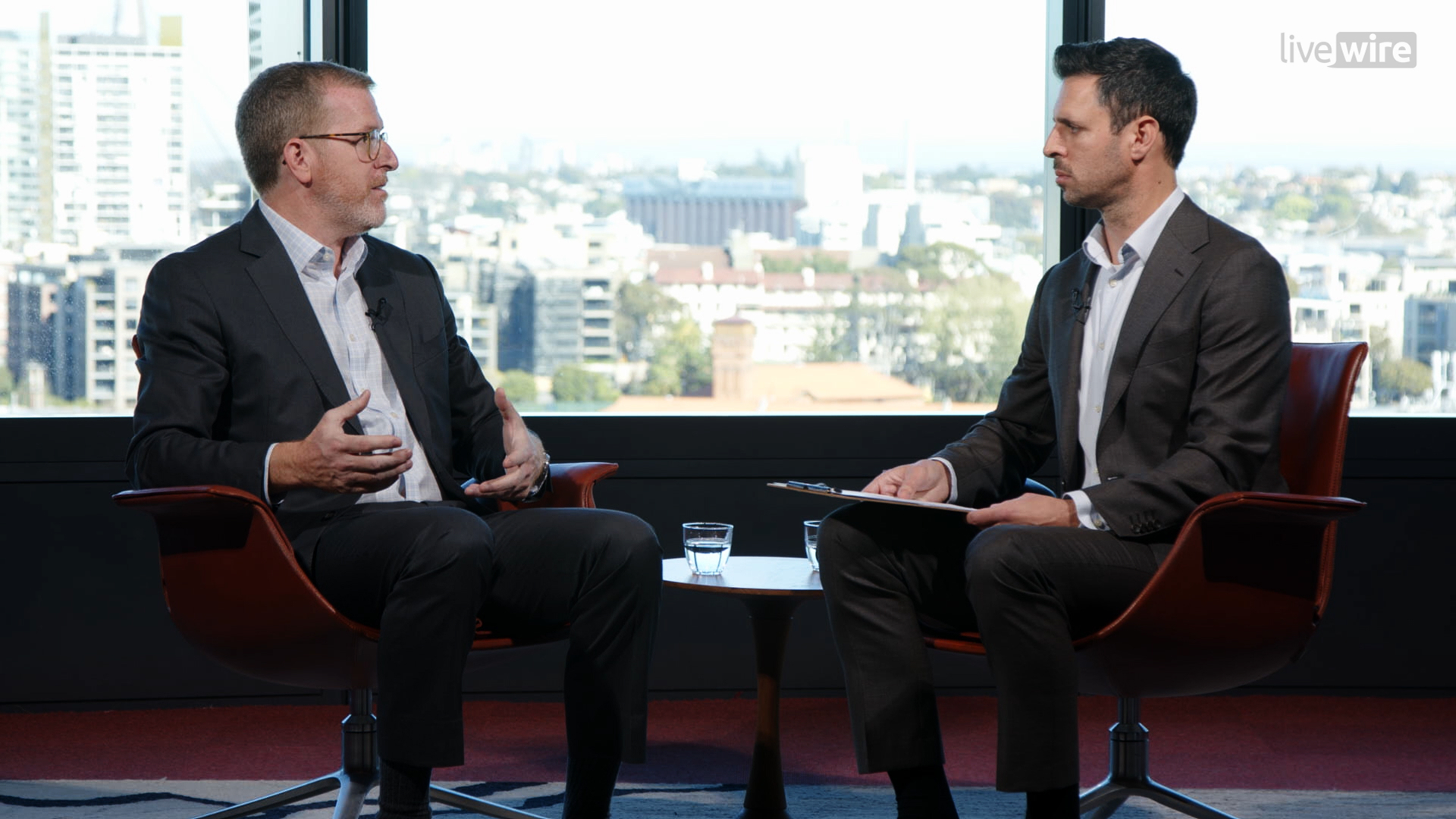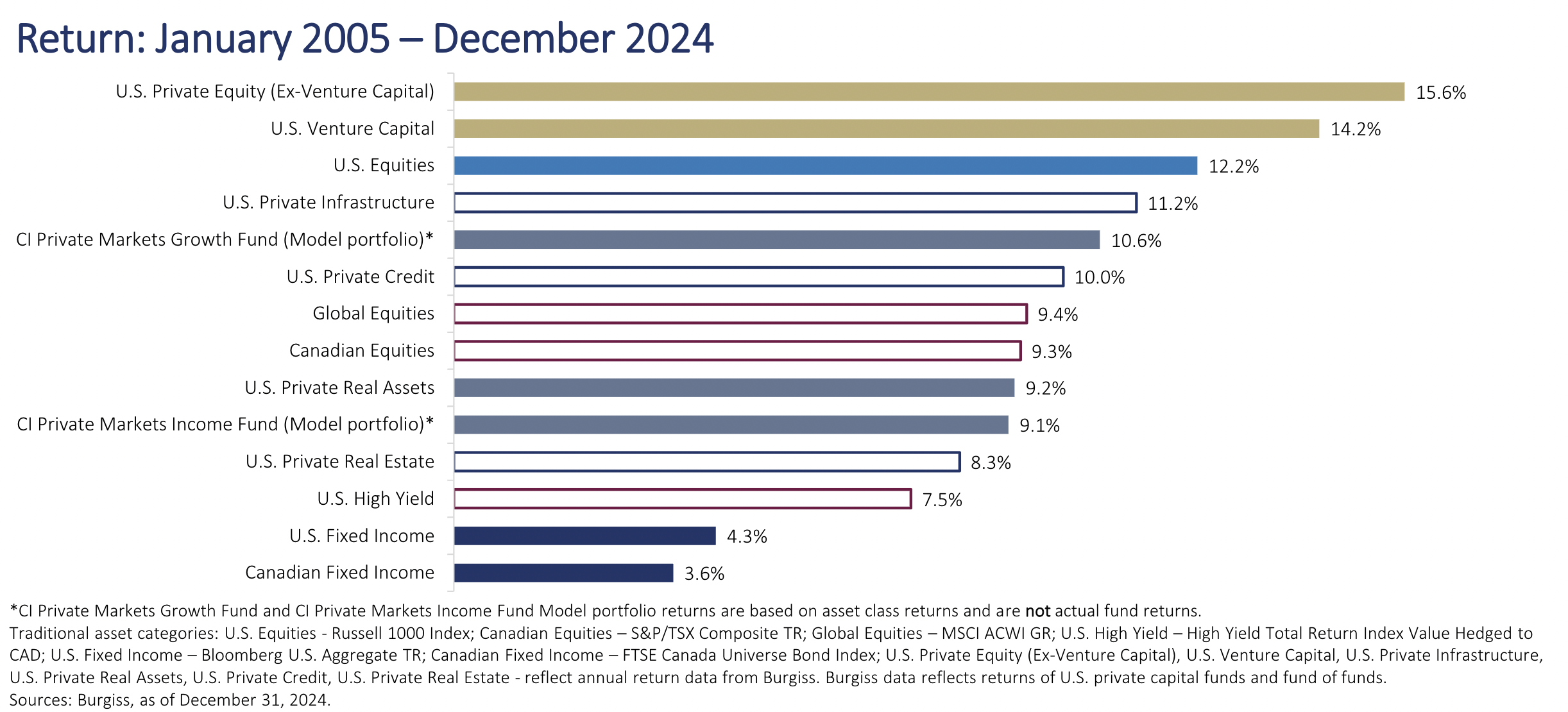It's all about diversification: why investors are big on private markets - and where they should be looking
There are some widely-accepted truths in investing:
Diversification is key. Patience is rewarded. Liquidity is paramount.
It's that last point that Marc-André Lewis, chief investment officer of the Canada-based CI Global Asset Management, is happy to challenge.
This interview was filmed on 15 September 2025.
The current mentality is that "everything has to be liquid", says Lewis but that's not always the best course of action.
"Once you reach a certain level of wealth, it's actually good in some cases to have these things where you can be more patient."
"Most investors don't need 100% of their portfolios to be liquid 100% of the time."
Private markets, he says, give you the ability to think in years instead of chasing short-term trends and returns. And the impressive growth seen in private markets is partly a result of investors coming to the same realisation.
"[Stock] indices are more and more dominated by handful of names," says Lewis. "Because there's been less and less IPOs, and a lot of companies are being privatised, public markets are shrinking, not in market cap, but in terms of names you can get access to."

Add extremely elevated valuations to the mix and it's understandable that investors may be looking away from the stock market.
"Once you start looking, 'okay, these markets are relatively expensive, they're relatively concentrated. If I want to diversify, where can I go?'," said Lewis. "And private markets have delivered performance. They deliver a different way to invest. It's easier to manage or to transform a company when it's private than when you have to deliver quarterly earnings."
As CIO of one of Canada's largest investment managers, Lewis has seen the big changes that have come to the sector in recent years.
"Private markets are mainly dominated by big institutional funds, but also big fund managers," says Lewis. "And what has happened, I would say over the last 10-15 years is the big institutional funds - the pension funds, the super funds here, are going more and more direct. So instead of using funds to deploy capital in private markets, they're doing deals themselves."
That created a void, says Lewis, where fund managers needed to find new capital. That, in turn, has led to private markets becoming more accessible, but also meant the introduction of some lower quality products.
For investors considering private markets, it's something worth keeping in mind.
One case in point is private equity, which has arguably outperformed all other asset classes over the last 20 years. But as the space has matured, performance has also diverged.
"I'm not sure it's going to necessarily outperform equities the way it did - the dispersion in performance in that space is massive. So I think going forward, it's extremely important to know what you invest in."
"If you can get access to top managers, the outperformance has been, is, and I think will continue to be, very strong."

Past performance is not a reliable indicator of future performance
Venture capital has similarly outperformed and the ongoing AI boom has seen a new wave of fresh capital.
"Everybody wants to do AI," he says. "Everybody feels they're missing out, even investors. So the risk there is that there's going to be a lot of companies that are going to attract capital that probably are not going to deliver on their promise."
For investors considering funds in that space, the same prudence applies, suggests Lewis.
"Once again - due diligence, knowing what you invest in. There's unfortunately going to be a lot of funds that promise and underdeliver."
On private real estate, Lewis believes the same post-Covid structural headwinds remain, but investors should "dig a level deeper" in how they assess the sector.
"You can buy a hole in the ground in Rio De Janeiro, or you can buy a building in Washington that is leased to the federal government for 30 years. These are not the same type of instruments."
Data centres have seen a lot of capital flow in, but at some point the market will become oversaturated, says Lewis.
Instead, he is looking at government infrastructure projects, funded by increasing fiscal stimulus, as an area of opportunity.
Ultimately, as with any investment, understanding who and what you're investing in is the key to private markets.
"There's a lot of funds that are out there trying to return capital to investors. Some of these funds have been raising money in a world where interest rates were extremely low and were focusing on financial engineering," says Lewis.
"I would say from our side, we want to focus on operators. Private fund managers are able to - and have shown to be able to - buy a business that is inefficient and actually extract value from this rather than just financial leverage."
5 topics

